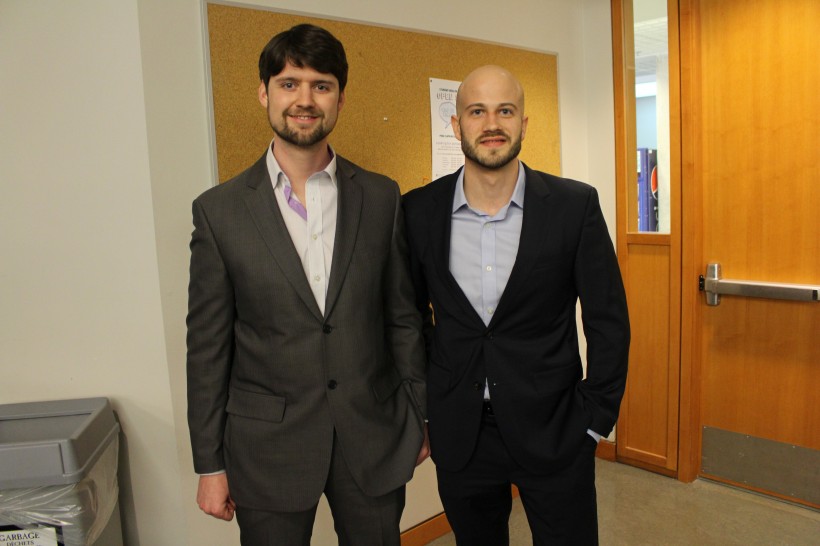ExVivo Labs of the University of Waterloo won the $25,000 first prize at fourth annual Canada’s Business Model Competition at Dalhousie University in Halifax on Saturday.
Co-Founders Christian Brum and Eric Blondeel won the prize for a poised and focused presentation on the development of their product, which reduces the pain and wait times involved in testing for allergies.
The pair will now proceed to the International Business Model Competition at the Microsoft campus in Redmond, Washington, in late April.
The pitchers described current tests for allergies as primitive, painful and inconvenient. People who believe they have an allergy now have to wait several months for a test, which involves placing substances on a needle, pricking the skin, and looking to see if there is a reaction. This is repeated with different substances until there’s a reaction.
ExVivo has developed a simple, painless patch that detects allergens through biomarkers present in the skin. Once the product is launched, patients could buy it at a pharmacy and apply it at home. If there’s a positive reading, they can book an appointment with an allergist. If not, they’ve saved a lot of hassle. It could reduce the wait times, which can stretch to more than a year.
“That’s why we’re calling it the home pregnancy test of allergies,” said Blondeel. “We’re not trying to take away the allergist. We are trying to find the right people who should be going to see an allergist.”
ExVivo has been working with Velocity Science at the University of Waterloo and the Waterloo Accelerator Centre’s ACJumpstart program, and is now preparing for its first clinical trials.
It is also now trying to raise investment capital. CEO Moufeed Kaddoura was unable to attend the competition in Halifax because he was at an allergy conference in Las Vegas, meeting with potential investors.
Brum and Blondeel charted the progress of the company, which previously received funding from the Velocity Fund.
As well as interviewing allergists, pharmacists and allergy patients, the team at one point surveyed 700 people across the country, many of whom said they would test repeatedly with the product. The main reason for wanting the patch was to speed up the testing process and be able to use it at home. And mothers of children with allergies don’t want their children subjected to the repeated pinpricks.
The team is preparing for an initial product that will test for grass allergies, which are increasingly common.
They added that the patch could be used by researchers to generate an early income stream. Clinical researchers need to find people with allergies to conduct their tests, but they can only determine whether people have allergies using the existing primitive process. By using the ExVivo patch, researchers could quickly find a group of people with allergies, cutting time and costs of the trials. And ExVivo would not have to go through the lengthy regulatory process to sell to researchers.
The Canadian and International Business Model Competitions assess student entrepreneurship teams based on the process they used in building their company. They place particular emphasis on the use of a lean canvas and interviewing potential customers and partners to shape the business case.










